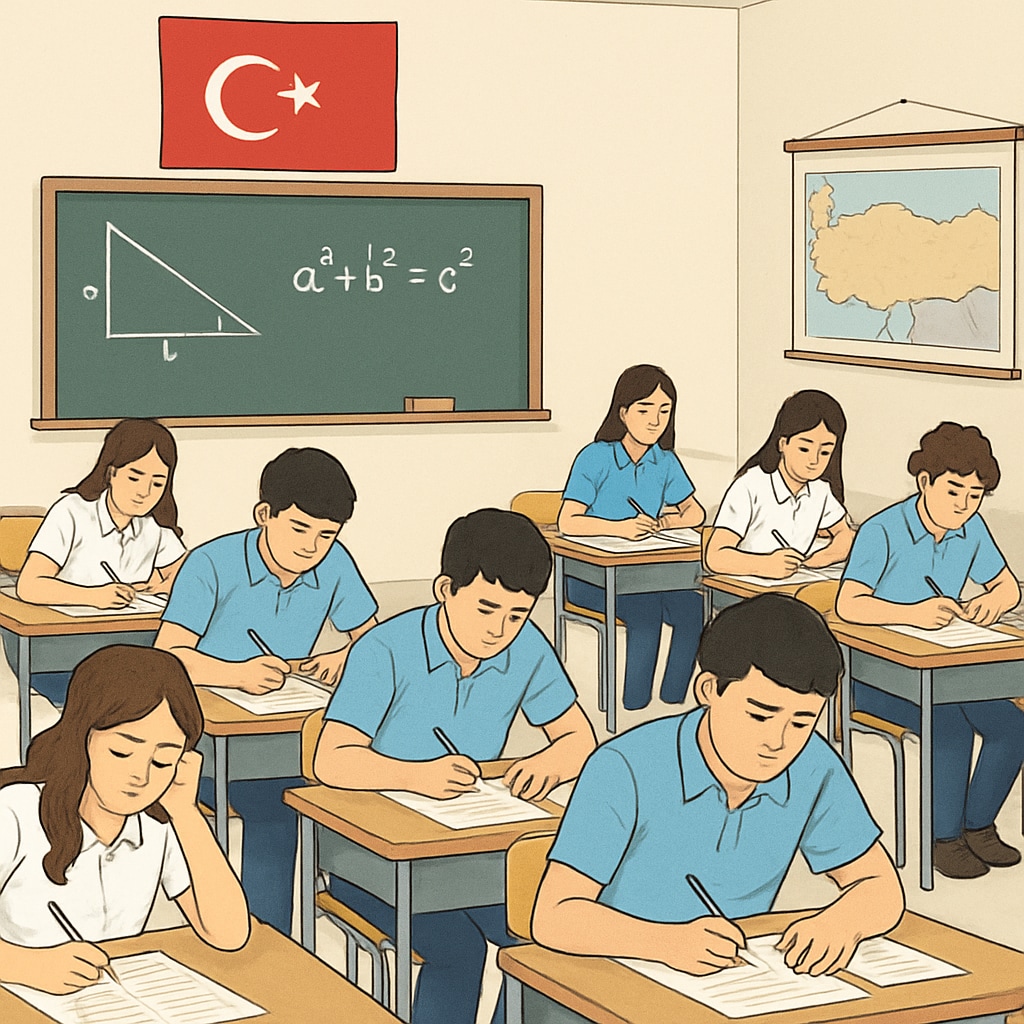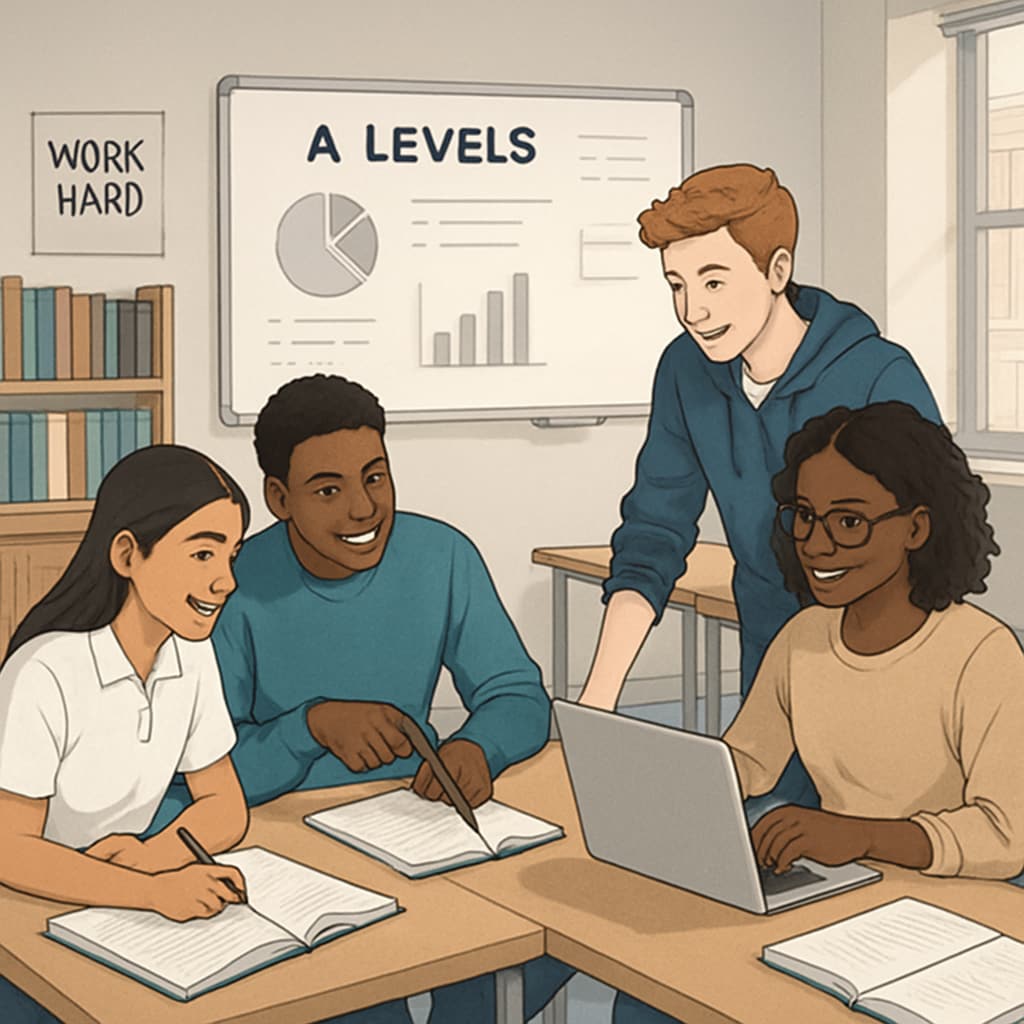The differences between education systems can have a profound impact on student development and future societal contributions. In this article, we analyze Turkey’s centralized exam system and the UK’s A Levels to explore how “education systems, exam pressure, A Levels, and education reform” intersect. Turkey’s system, with its mandatory all-subject exams, often suppresses creativity and motivation, while the UK’s A Levels model encourages specialization and individualized growth. Drawing lessons from both, we propose actionable reforms to nurture talent better suited for a rapidly evolving global economy.
The Challenges of Turkey’s Centralized Exam System
Turkey’s education system heavily relies on centralized, high-stakes exams, such as the YKS (Higher Education Institutions Exam), which students must take to enter universities. These exams require proficiency across a wide range of subjects, even those unrelated to a student’s intended field of study. This structure increases exam pressure and often leads to a narrow, test-focused approach to education. Instead of fostering a love for learning, students are driven to memorize content, reducing critical thinking and creativity.
For example, a student aspiring to study art must excel in mathematics or science—subjects that may not align with their strengths or career goals. As a result, students often feel demotivated, and many are unable to fully explore their potential in areas where they could truly excel.

The UK’s A Levels: A Model of Specialization and Flexibility
In contrast, the UK’s A Levels system allows students to specialize in three to four subjects of their choice, typically aligned with their academic interests and career aspirations. This flexibility fosters deeper engagement, as students focus on areas they are passionate about. Furthermore, the curriculum emphasizes analytical thinking, problem-solving, and independent learning, preparing students for university and beyond.
For instance, a student interested in engineering might choose mathematics, physics, and design technology, avoiding unrelated subjects like history or literature. This targeted approach not only reduces unnecessary stress but also enhances motivation and performance in chosen fields.
According to Wikipedia, the A Levels system is widely regarded as a pathway that balances academic rigor with individual preferences, making it one of the most respected qualifications globally.

Lessons for Turkey: Reforming Education for the Future
Turkey can draw valuable insights from the UK’s A Levels model to reform its education system. Here are some actionable recommendations:
- Introduce Specialization: Allow students to focus on subjects aligned with their interests and future careers, reducing the need for mandatory all-subject exams.
- Promote Critical Thinking: Shift the curriculum from rote memorization to skills like problem-solving, creativity, and analytical reasoning.
- Reduce Exam Pressure: Implement continuous assessment systems that evaluate students over time rather than through a single, high-stakes exam.
- Strengthen Teacher Training: Equip educators with the tools and methodologies to encourage individualized learning and student engagement.
Countries like Finland and Singapore, which have successfully reformed their education systems, show that such changes can lead to improved outcomes. For example, Britannica’s insights on global education systems highlight how flexible and student-centered approaches can better prepare learners for modern challenges.
Conclusion: Unlocking Student Potential
By comparing Turkey’s centralized exam system with the UK’s A Levels, it becomes clear that education reform is essential for unlocking student potential. While Turkey’s system emphasizes uniformity and breadth, the UK’s model values specialization and depth. Adopting a more flexible and student-centered approach can help reduce exam pressure, foster creativity, and prepare students for a complex future. As Turkey considers reforms, it has an opportunity to create an education system that truly nurtures the diverse talents of its youth.
Ultimately, education systems should aim to empower individuals, not constrain them. By learning from global practices like the A Levels, Turkey can chart a path toward a brighter and more inclusive educational future.
Readability guidance: This article uses short paragraphs, clear transitions, and practical recommendations to ensure accessibility. Lists and examples help summarize key points, while external links provide credibility.


